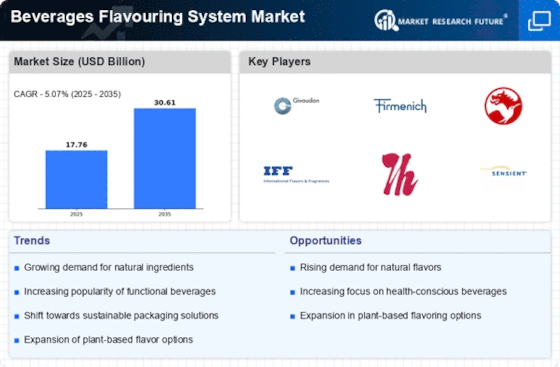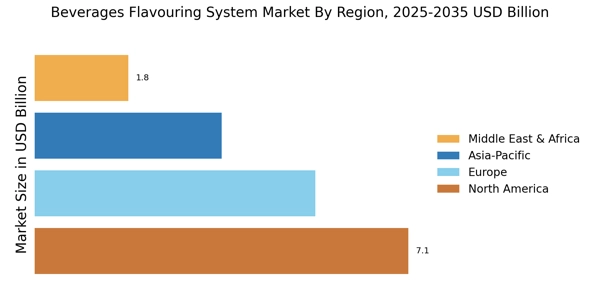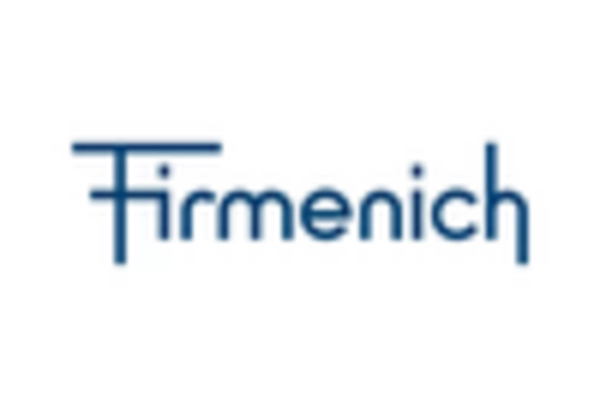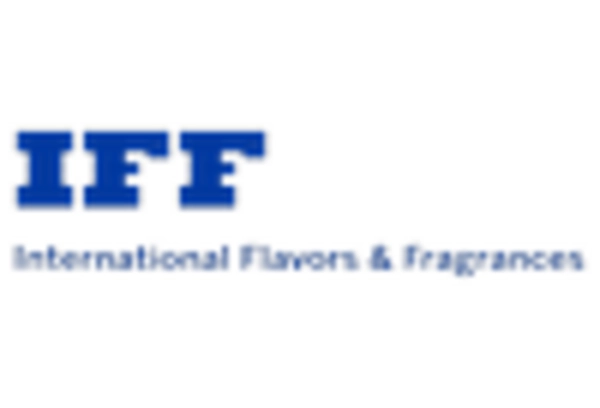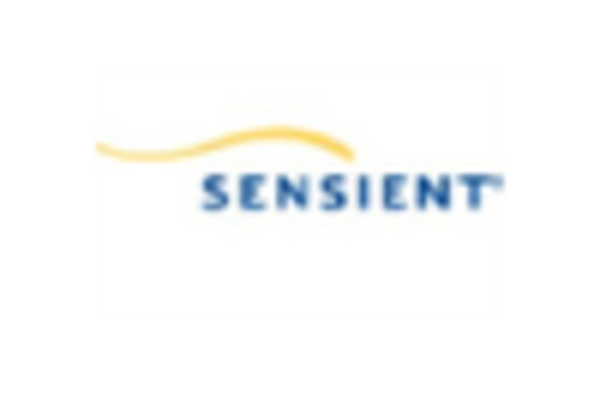Sustainability in Flavor Sourcing
Sustainability has emerged as a critical driver in the beverages flavouring system Market, influencing sourcing practices and consumer preferences. As environmental concerns gain prominence, consumers are increasingly seeking products that align with their values, particularly regarding sustainable sourcing of flavoring ingredients. Market data indicates that brands that prioritize sustainability in their supply chains are likely to gain a competitive edge, as consumers are willing to pay a premium for ethically sourced products. This trend is prompting manufacturers to adopt transparent sourcing practices and invest in sustainable agriculture initiatives. The emphasis on sustainability not only addresses consumer demand but also contributes to the long-term viability of the Beverages Flavouring System Market, as it encourages responsible production methods and reduces environmental impact.
Health-Conscious Flavor Innovations
The increasing consumer inclination towards health-conscious choices is a pivotal driver in the Beverages Flavouring System Market. As individuals become more aware of the impact of their dietary choices on overall health, there is a growing demand for natural and organic flavoring options. This trend is reflected in market data, which indicates that the demand for natural flavors is projected to grow at a compound annual growth rate of approximately 5% over the next five years. Manufacturers are responding by innovating flavors that not only enhance taste but also offer health benefits, such as functional ingredients that support wellness. This shift towards health-oriented flavor innovations is likely to reshape product offerings in the Beverages Flavouring System Market, encouraging brands to invest in research and development to meet evolving consumer preferences.
E-commerce and Direct-to-Consumer Sales
The rise of e-commerce and direct-to-consumer sales channels is transforming the landscape of the Beverages Flavouring System Market. With the proliferation of online shopping platforms, consumers now have unprecedented access to a diverse range of beverage flavoring options. Market data suggests that online sales of beverage flavoring products have surged, with a notable increase in the number of consumers opting for home delivery services. This shift not only enhances convenience but also allows brands to engage directly with consumers, fostering brand loyalty and personalized marketing strategies. As e-commerce continues to expand, it is anticipated that the Beverages Flavouring System Market will witness a significant increase in online sales, compelling manufacturers to optimize their digital presence and distribution strategies.
Flavor Customization and Personalization
The demand for flavor customization and personalization is rapidly gaining traction within the Beverages Flavouring System Market. Consumers are increasingly seeking unique and tailored flavor experiences that cater to their individual preferences. This trend is reflected in market data, which shows a growing number of beverage brands offering customizable flavor options, allowing consumers to create their own blends. This shift towards personalization not only enhances consumer engagement but also fosters brand loyalty, as customers feel a deeper connection to products that reflect their tastes. As the Beverages Flavouring System Market evolves, it is likely that manufacturers will continue to innovate in flavor customization, leveraging technology to provide consumers with more interactive and personalized experiences.
Emerging Markets and Consumer Demographics
Emerging markets and shifting consumer demographics represent a significant driver in the Beverages Flavouring System Market. As populations in developing regions grow and urbanization accelerates, there is an increasing demand for diverse beverage options, including flavored drinks. Market data indicates that younger consumers, particularly millennials and Generation Z, are driving this trend, as they seek innovative and exciting flavor profiles. This demographic shift is prompting manufacturers to explore new flavor combinations and adapt their offerings to cater to local tastes and preferences. As the Beverages Flavouring System Market continues to expand, it is anticipated that brands will increasingly focus on emerging markets, tailoring their strategies to meet the unique demands of these evolving consumer bases.


